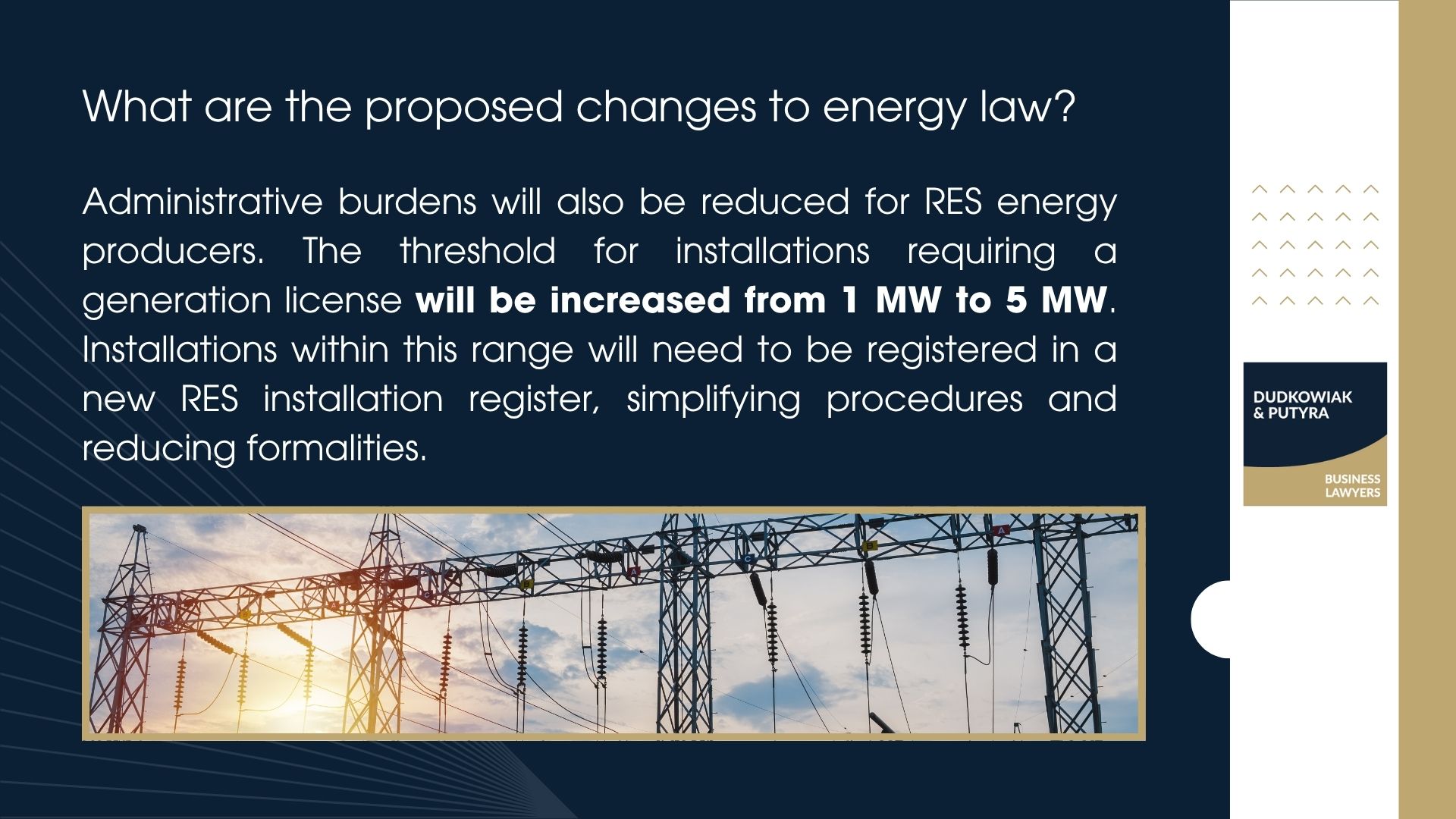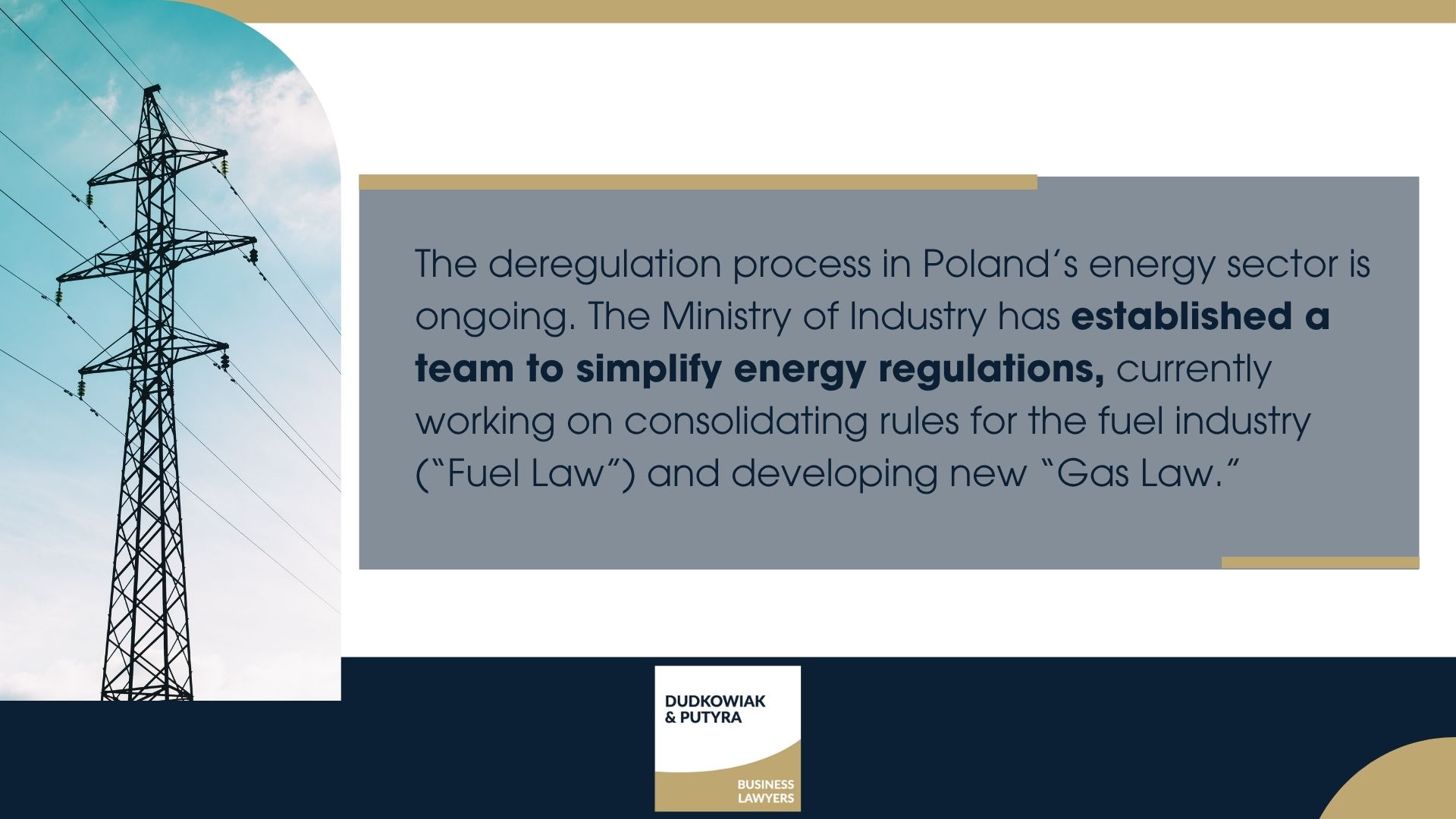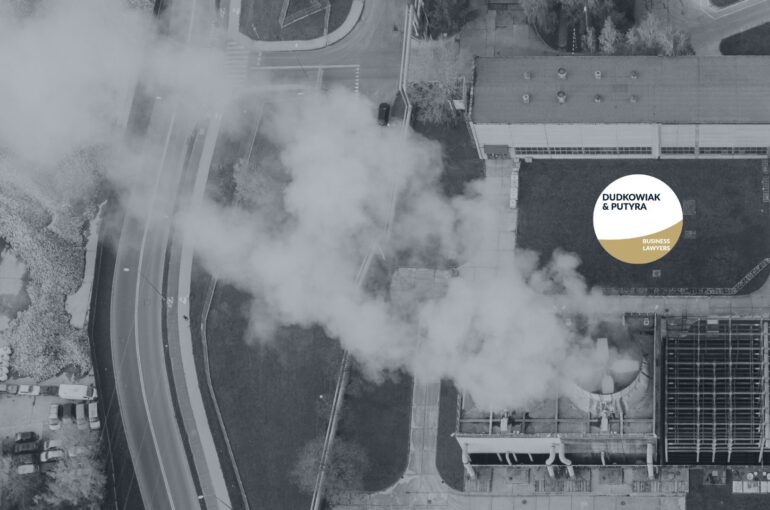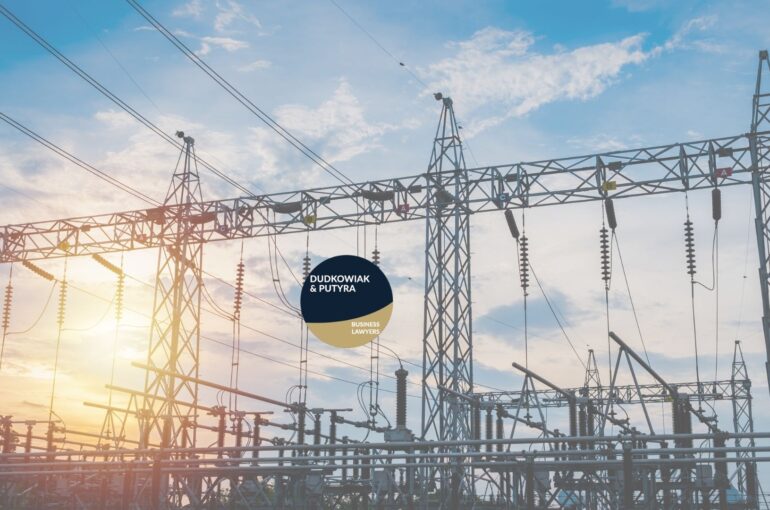Deregulation of the Energy Sector in Poland: Latest Initiatives and Legislative Directions
In March 2025, the Council of Ministers established the Government Deregulation Team as part of the “Polska – Rok Przełomu” program, aimed at simplifying legal regulations and better adapting them to the needs of citizens and businesses. Particular attention has been paid to the energy sector, a key area for transformation and the achievement of the EU’s ambitious climate goals.
The team identified that current regulations regarding communication with electricity consumers and the construction process of renewable energy installations (RES) are excessively stringent, creating unnecessary administrative burdens.
What are the proposed changes to energy law?
The proposed legislative changes cover several critical areas. First, electricity bills directed to households will be simplified to ensure that the most important information- such as the total amount due and key billing components- is clearly displayed on the first page of the invoice.
Another significant element is the transition of communication between energy companies, consumers, public administration, and other entities to electronic correspondence. This will be accompanied by the right of consumers to continue receiving paper correspondence upon request, safeguarding those who are digitally excluded.
An important aspect also involves optimizing the existing electrical infrastructure by extending the so-called cable pooling formula to include the use of energy storage systems. This solution will enable more efficient utilization of connection capacities and support the development of new RES installations without the need for additional network infrastructure. The integration of different technologies- such as photovoltaics and wind energy with energy storage- will allow better production management and network stabilization, which is crucial for energy security.
Administrative burdens will also be reduced for RES energy producers. The threshold for installations requiring a generation license will be increased from 1 MW to 5 MW. Installations within this range will need to be registered in a new RES installation register, simplifying procedures and reducing formalities.

Implementing this mechanism requires amendments to the Renewable Energy Sources Act and the Act on Promoting Electricity from High-Efficiency Cogeneration.
Furthermore, the threshold for photovoltaic installations that can be built without a construction permit is planned to increase from the current 150 kW to 500 kW, provided the installation serves solely to meet the owner’s own electricity needs.
On June 2, 2025, the draft bill was submitted for its first reading in parliamentary committees.
What are the new requirements for connecting to the grid?
A draft amendment to the Energy Law, developed by the Ministry of Climate and Environment, introduces new conditions for connecting RES installations and energy storage systems to the grid. Key changes include a validity period of 12 months for connection agreements, mandatory electronic applications, and requirements for financial securities and fees- such as an advance payment of PLN 60 per kW and a system impact study fee.
Importantly, these new regulations will apply also to entities with existing agreements or pending applications. Failure to meet the new requirements may lead to termination of connection agreements, thus demanding higher project readiness from investors.
Industrial Sustainable Development Zones- support for energy-intensive enterprises
The government has also prepared a bill aimed at supporting energy-intensive enterprises through the creation of so-called Industrial Sustainable Development Zones.
These areas will be established by ministerial decision for companies meeting specific criteria, such as those using direct energy lines or holding Power Purchase Agreements (PPAs). Businesses operating in these zones will benefit from preferential electricity and heat tariffs, exemption from solidarity fees, and faster timelines for obtaining connection conditions.
What are the prospects for further deregulation of the energy sector?
The deregulation process in Poland’s energy sector is ongoing. The Ministry of Industry has established a team to simplify energy regulations, currently working on consolidating rules for the fuel industry (“Fuel Law”) and developing new “Gas Law.”

Plans are also underway to split the existing Nuclear Law into two separate acts- one regulating nuclear energy and another governing the use of radioactive materials for non-energy purposes, such as medical applications.
The introduced and planned legislative changes aim to reduce bureaucratic burdens and streamline the energy market, with particular focus on developing renewable energy sources.
Are you planning to invest in renewable energy sources?
Contact us– we will help you prepare for the upcoming changes and safely implement your energy project.


